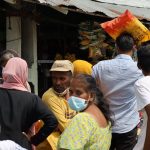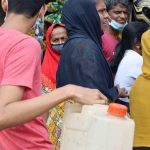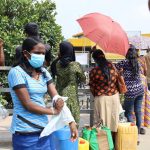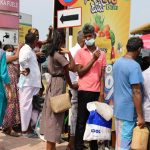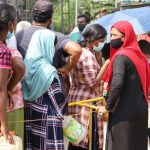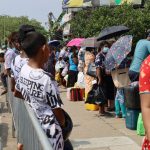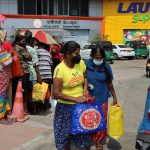Sri Lanka, a country that suffered a recent genocide (2019 Easter Terror Attack), two major youth insurrections, and a 30 years of civil war, is now facing an unprecedented set of economic challenges. The causes of the present economic crisis are primarily attributed to the collapse of revenues generated from tourism that was completely deterred by COVID-19 pandemic as well as decline in foreign worker remittances. However, analysists argue that the causes of the present crisis were set in motion, well before the pandemic stroke, in the form of accumulated sovereign debts, rising fiscal and current account deficits as well as declining investor confidence.
Crisis Imprecation
Depletion in foreign reserves has curtailed Sri Lankan Government’s ability to account for import of essential items. As results, long queues at grocery stores, fuel stations, and pharmacies have now become the new normal. Local authorities have also imposed rationing of electricity which resulted in power outages. Banning the import of chemical fertilizers has severely affected the production of agriculture goods and escalated food insecurity in the country.
The import restrictions on essential goods in the short run may have reduced expenditure and thus trade balance. However, continuing ban on imports would affect the exports too, because export industry of Sri Lanka is largely dependent on imported intermediate capital goods.
Monthly household income is decreased by 21 – 31 percent. The largest reductions in income is felt by those working in services and manufacturing sectors. The prices of all the essential goods like gas, sugar, edible oils, tea, food, grains, petrol, etc. are skyrocketing.
The status of the most vulnerable groups in society
A comprehensive macroeconomic stabilization program and overall economic reform agenda will impact key economic variables. Some of these programs seems desirable and some are not. Low-income groups are adversely affected by these policy adjustments. Hence, analysis advocate that attention needs to be given in creating ‘responsive safety nets’ to protect the most vulnerable in the society. The current ‘Samurdhi’ program (the country’s largest social protection scheme) is woefully lacking in terms of adequacy and targeting.
Government Policy Interventions
The Government and the Central Bank of Sri Lanka (CBSL) believe that the pressures on the economy will ease soon with a steady inflow of forex as result of recent policy measures taken. The situation on the ground nonetheless suggests that the state of uncertainty will continue to hover the economy and the society.
Sri Lankan Government initially were not keen to approach International Monitory Fund (IMF) for assistance arguing its assistance would come with stringent measures attached, which would impose additional burden on the people who are already facing challenges due to the pandemic and the ongoing economic crisis. The incumbent government is also of the view that the IMF programs, implemented in Sri Lanka from time to time, worsened the country’s economic problems. Though the government was confident that it would be able to deal with the situation without IMF intervention, recent dialogues between the officials of the government and IMF, however, suggests that the government will get technical advice from IMF.
The way the government is handling the situation is not being appreciated by the economists and opposition parties. The analysts argue that the government is focusing on short-term measures and on particular segments without taking a holistic approach to the overall economic interactions.
Protest Campaigns
Opposition parties have organized several protest campaigns advocating the ruling party to stepdown and call for presidential and general elections. These campaigns often carried sentiments of violence, hate speech and disturbance in social order creating fear, anxiety and despair especially among children and vulnerable groups. None of these campaigns have neither been able to provide workable solutions nor practical measures.
Caritas Sri Lanka Interventions
Caritas Sri Lanka endeavors to stand in solidarity with the most vulnerable groups by enhancing their resilience to cope up with the situation. It does so through twofold strategies: first; by integrating envisaged vulnerabilities into development programing, and second: by advocating that the government policy interventions bear minimum adversity on poor and vulnerable.
Caritas Sri Lanka together with its constituencies (Diocesan Centers), first, endeavored to bring revisions to project activities making them ‘crisis sensitive’ and ‘crisis responsive’. These revisions are expected to enhance responsiveness in terms of enhancing ‘food security’, ‘restoration and sustenance of livelihoods’ and ‘building resilience capabilities’.
As the second strategic intervention, Caritas Sri Lanka endeavors to bring the contextual vulnerabilities into the attention of policy makers and bureaucrats. ‘Silent Solidarity Campaign’ to be held on 9th April 2022 will be a gesture that the Church stands in solidarity with the people and that the Church is responsive in mobilizing resources to build and enhance resilience to cope up with economic shocks and vulnerabilities.


